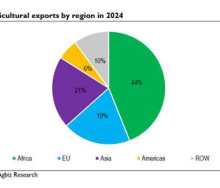The acting commissioner of the Broad-Based Black Economic Empowerment (B-BBEE) Commission, Zodwa Ntuli, sent a tough message regarding BEE compliance when she addressed key stakeholders around the establishment of the B-BBEE Commission.
“An effective Commission is important for the pace of transformation of our economy to be accelerated to achieve the objectives of the B-BBEE Act,” she said.
The B-BBEE Act clearly defined what the Commission should be focusing on based on gaps that had existed since the implementation of B-BBEE in 2003, she added.
“Our review has revealed that the monitoring of transformation was not conducted diligently. We therefore must ensure that the Commission closes this gap. B-BBEE cannot continue to be applied in pockets, haphazardly and when people feel like it. We must be able to constantly measure the economic value of BEE transactions and verify whether they are measurable against the National Development Plan imperative of reducing poverty, unemployment and inequality. With this revised Act now we will be able to zoom in on company reports and interrogate spending patterns to determine whether they are advancing transformation in real and sustainable terms,” said Ntuli.
She also identified fronting practices as a key constraint to transformation and an issue on which the Commission would also be focusing.
“Fronting as a practice started off on a small scale and has continued unabated to the point that it has become sort of a norm. Fronting has now become so complex and sophisticated, and made part and parcel of many BEE deals as if it is a legitimate practice. The Commission will focus on eradicating this practice, but more importantly it will focus on putting measures in place to prevent such practice going forward. B-BBEE deals, including those broad-based empowerment schemes, will be scrutinised regularly and monitored to detect this fraudulent practice. Fronting undermines transformation and is unacceptable,” added Ntuli.
The Commission would also work with government entities and other players to identify those companies that misrepresented their B-BBEE status and manipulated the application of the codes to defraud government. It would ensure that they were publicised, prosecuted and ultimately excluded from doing business with any government component, she said. Such culprits should not be allowed to continue to unjustly benefit from government procurement.












